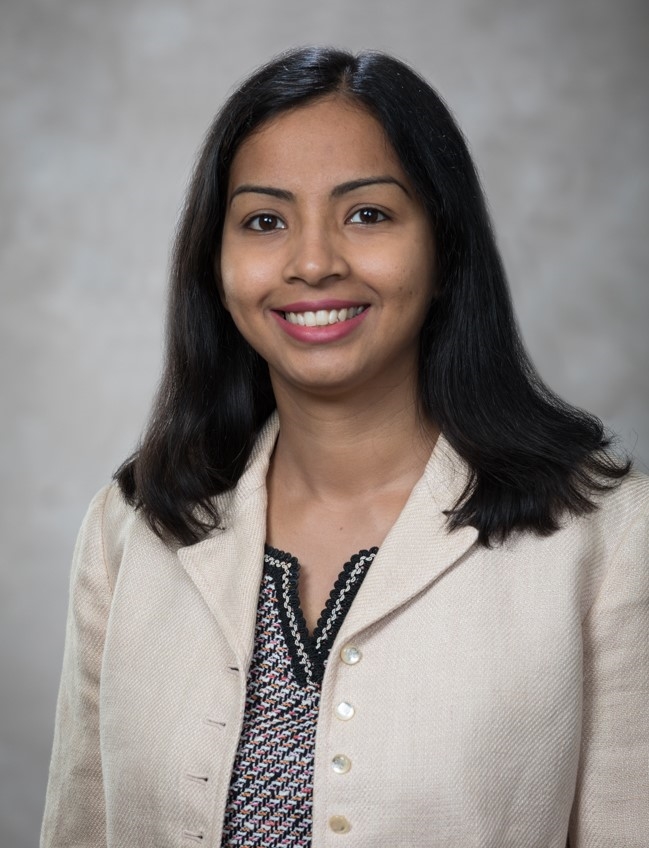Rebekah Margaret Samsonraj, assistant professor in the Department of Biomedical Engineering, has received a $466,266 grant from the National Science Foundation for research in future biomanufacturing of stem cell-derived therapeutics.
The goal of the project is to understand mechanisms of biophysical modulation of mesenchymal stem cells (MSCs) to enhance the secretion of bioactive extracellular vesicles that can mediate tissue repair and regeneration. A major bottleneck in MSC-derived extracellular vesicles biomanufacturing is their scalability during product development to achieve clinically relevant doses. Current practices rely on invasive manipulations to cells and culture conditions which have either damaging implications on the final product or incur high costs and operate at small scales making them less viable for best-practice manufacturing.
This innovative study will improve MSC-derived extracellular vesicles production through noninvasive modulations of MSCs feasible for large-scale manufacturing. This NSF Future Manufacturing Seed Grant will allow identification of cellular responses to biophysical modulations and evaluate improvements to overall secretome, EV production, and functionality. The study will not only add new fundamental knowledge on mechanotransduction in MSCs, but also provide functional evidence for overcoming large-scale manufacturing challenges in MSC production.
"I'm grateful to receive this competitive grant from NSF to study the fascinating characteristics of MSCs which can be harnessed for accelerating novel cell-based therapies. We're thrilled to receive federal support to advance our innovative research on MSCs. This is an outcome of tremendous efforts by our team, and we are looking forward to impactful results", says Samsonraj. The project will train and develop a strong and diverse future biomanufacturing workforce, having wide-reaching impacts on education, science and engineering, and the U.S economy.
Samsonraj has lead research efforts in the field of MSC-based cellular therapy and best-in-class MSC manufacturing since her doctoral studies. She was recently named 'MSC Rising Star' by Rooster Bio, a leading cell manufacturing industry. Her young and growing laboratory — the Cellular Therapy and Biomanufacturing Lab — collaborates with multiple cell experts across the nation and is well-poised to take their science closer to clinical implementation and commercialization.
Raj R. Rao, professor and head of biomedical engineering, said that the manufacturing aspect of this work is an important step to help move theoretical research toward commercialization. "I am excited about Dr. Samsonraj's plan for this research," he said. "The more research activities move toward production and commercialization of real-world therapies, the better for consumers in need of the products and the better for the economy through higher-paying employment opportunities in the workforce."
More details about ongoing research in cell-based therapies and regenerative medicine in the Department of Biomedical Engineering can be found on the regenerative research page.
Topics
Contacts
Rebekah Samsonraj, assistant professor
Department of Biomedical Engineering
479-575-8640, rmsamson@uark.edu
Christin Finney, digital communications specialist
College of Engineering
479-575-4173, crn002@uark.edu
